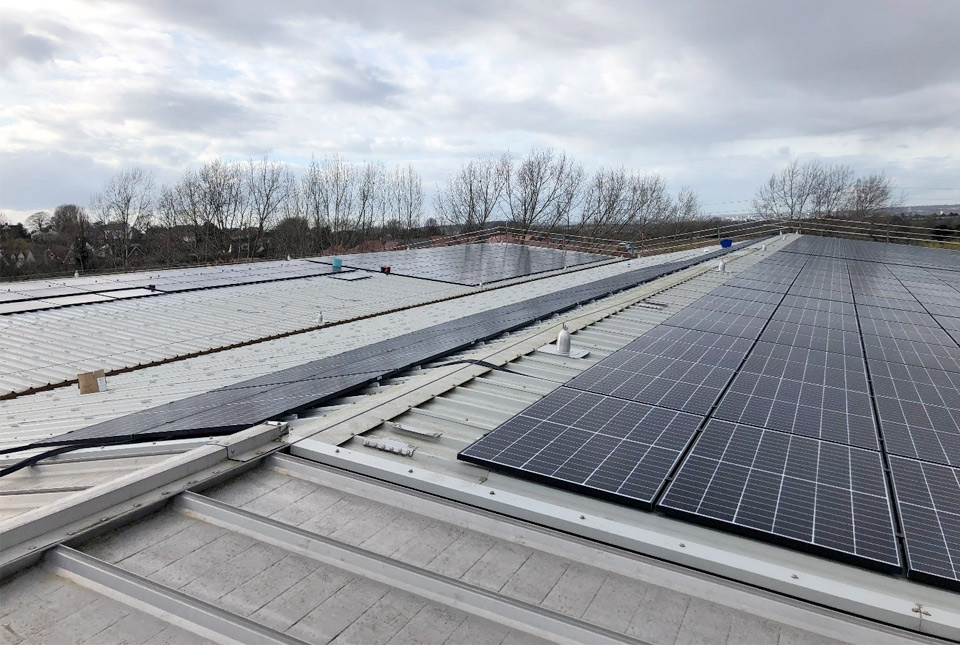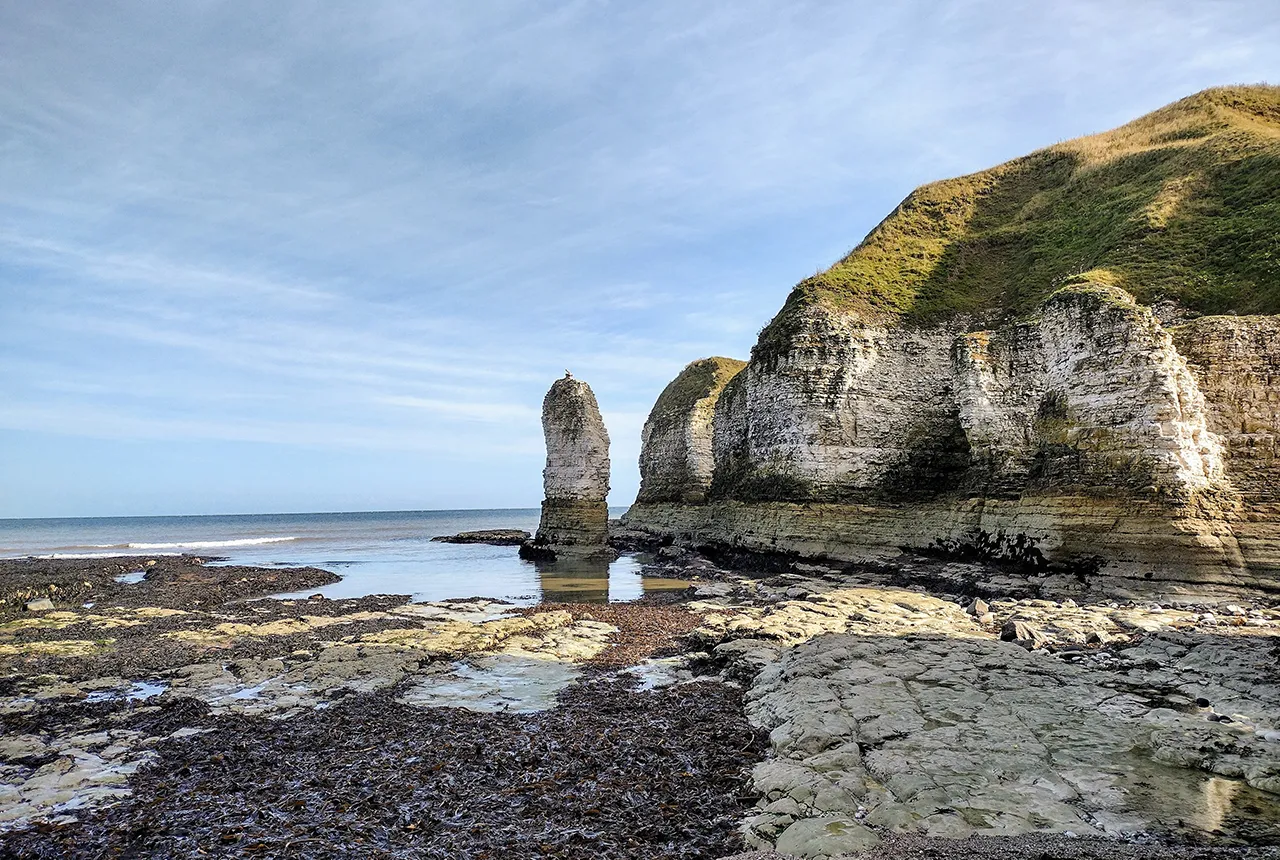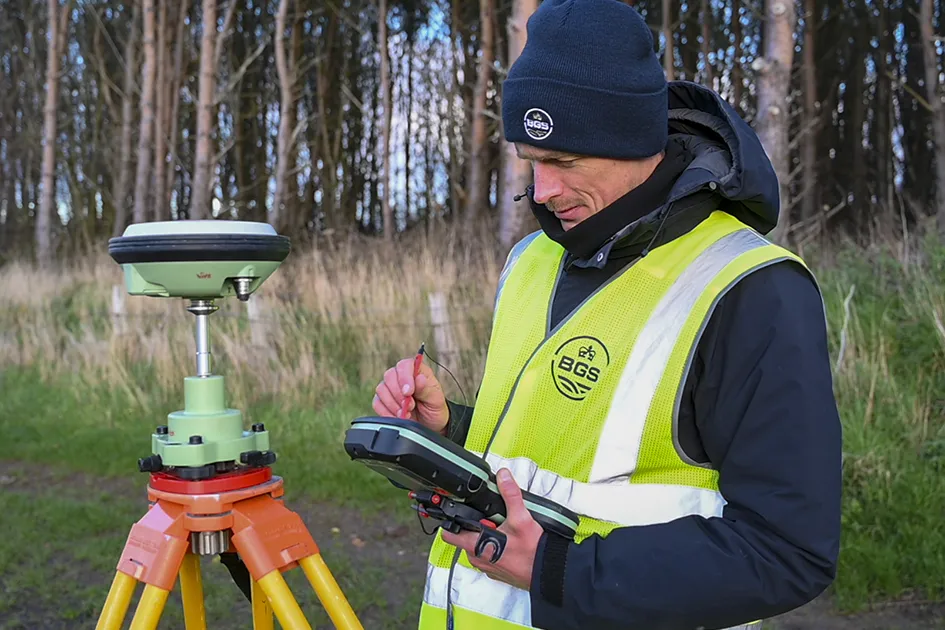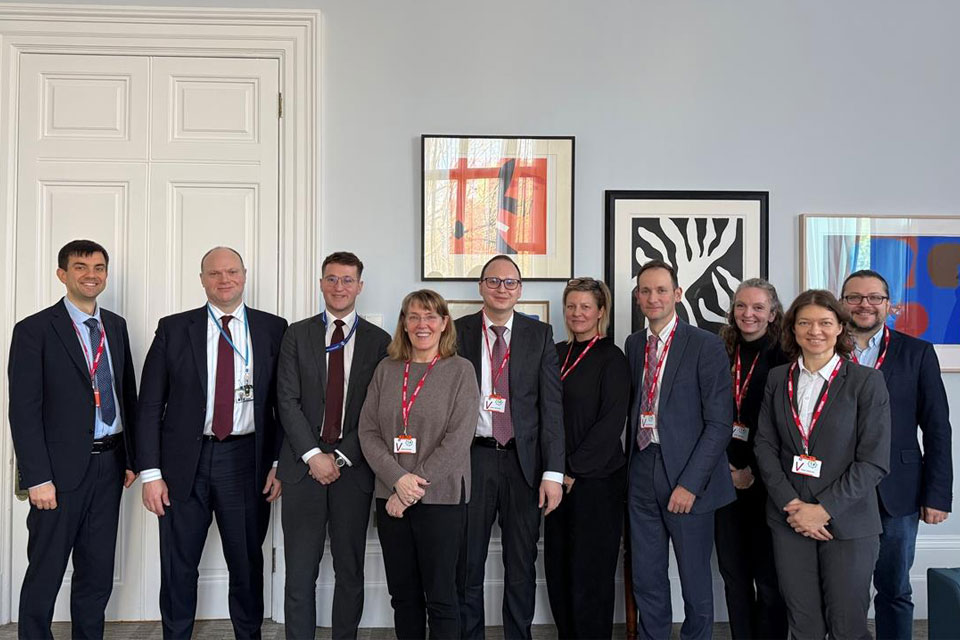Core Store solar project supports BGS net zero targets
A large new solar panel array on the roof of the BGS Core Store is expected to result in a significant reduction in our carbon footprint.
02/07/2021 By BGS Press
As a sector-leading organisation, the BGS Environmental Sustainability Strategy aims to achieve net zero carbon for our directly managed estates and research in line with the commitment made by our parent body, UKRI. By 2040, we will have substantially raised our standard for environmental sustainability and we will have fully embedded it in our science strategy and estate management. We also plan to work beyond compliance.
The research we undertake and how we support it has an impact on the environment. It is essential that we understand this impact so that we can minimise our footprint and and transition to a more sustainable organisation. The commitments within our strategy are embedded across three areas: our estate, working practices and business travel.
In order to meet the net zero targets highlighted in our strategy, we are reducing our demand on fossil fuels by installing the most environmentally friendly modern technologies on our sites. Carbon dioxide (CO2) levels are substantially higher now than at any time in the last 750 000 years. Burning fossil fuels releases CO2 and other harmful greenhouse gases, which then accumulate as an insulating ‘blanket’ around the Earth, trapping more of the Sun’s heat in our atmosphere.
Our latest renewable energy project entailed the installation of a large solar panel array on one of our largest roof spaces at the Keyworth site, the National Geological Repository (Core Store). An incredible 1751 photovoltaic array covers a massive 3100 m2 area of our Core Store Facility’s roof. This array will result in 589 165 kWh of electricity being generated per year — the total yearly energy consumption of around 160 UK homes — and will save an estimated 305 776 kg of carbon each year.
By installing solar panels, the BGS Keyworth estates team has utilised a system that could be installed relatively quickly and would make a key difference on our estate. Generating our own electricity via solar energy means we will be emitting less CO2 into the atmosphere, reducing our carbon footprint and increasing our sustainability credentials.
We look forward to sharing futher renewable energy initiatives at BGS in the near future.
Relative topics
Related news

Funding awarded to map the stocks and flows of technology metals in everyday electronic devices
12/02/2026
A new BGS project has been awarded Circular Electricals funding from Material Focus to investigate the use of technology metals in everyday electrical items.

New UK/Chile partnership prioritises sustainable practices around critical raw materials
09/02/2026
BGS and Chile’s Servicio Nacional de Geología y Minería have signed a bilateral scientific partnership to support research into critical raw materials and sustainable practices.

Extensive freshened water confirmed beneath the ocean floor off the coast of New England for the first time
09/02/2026
BGS is part of the international team that has discovered the first detailed evidence of long-suspected, hidden, freshwater aquifers.

Funding secured to help mitigate ground risk in UK construction sector
05/02/2026
The BGS Common Ground project has been awarded new funding to help unlock the value of ground investigation data.

Can sandstones under the North Sea unlock the UK’s carbon storage potential?
02/02/2026
For the UK to reach its ambitious target of storing 170 million tonnes of carbon dioxide per year by 2050, it will need to look beyond the current well-studied geographical areas.

Quaternary UK offshore data digitised for the first time
21/01/2026
The offshore wind industry will be boosted by the digitisation of a dataset showing the Quaternary geology at the seabed and the UK’s shallow subsurface.

Suite of ten new soil reference materials released
02/01/2026
BGS has a longstanding track record of producing high-quality reference materials and has released ten new soil reference materials.

Perth and Kinross tops the UK’s earthquake activity charts for 2025
29/12/2025
Seismologists at BGS have published data on the number of seismic events over the past 12 months with over 300 earthquakes recorded.

BGS awarded funding to support Malaysia’s climate resilience plan
17/12/2025
The project, funded by the Foreign, Commonwealth & Development Office, will focus on minimising economic and social impacts from rainfall-induced landslides.

New geological maps of the Yorkshire Wolds to better inform groundwater management and policy decisions
17/12/2025
The new mapping provides crucial data on localised geological issues that may assist in protecting water supplies.

‘Three norths’ set to leave England and not return for hundreds of years
12/12/2025
The historic alignment of true, magnetic, and grid north is set to leave England, three years after they combined in the country for the first time since records began.

BGS agrees to establish collaboration framework with Ukrainian government
11/12/2025
The partnership will focus on joint research and data exchange opportunities with Ukrainian colleagues.


